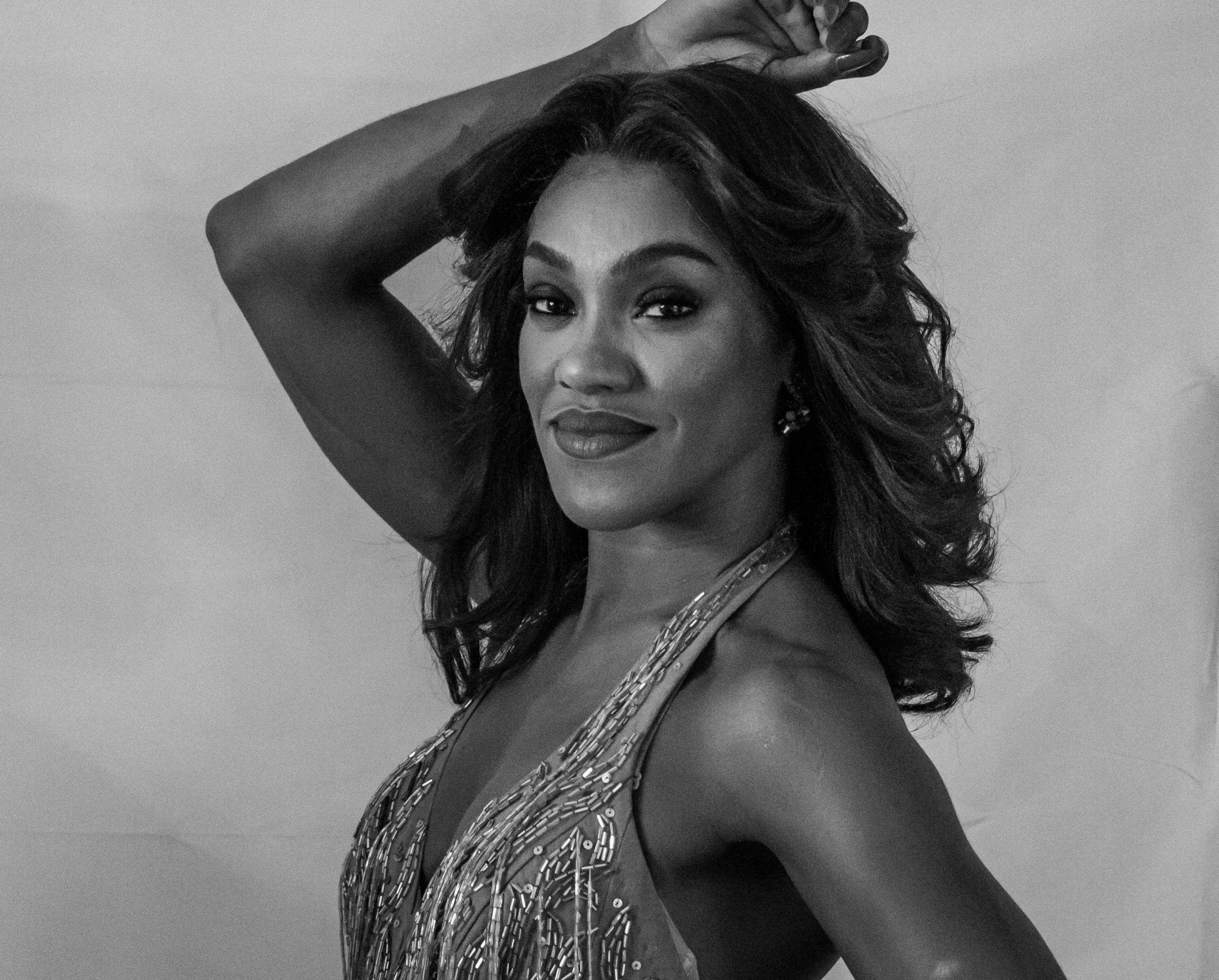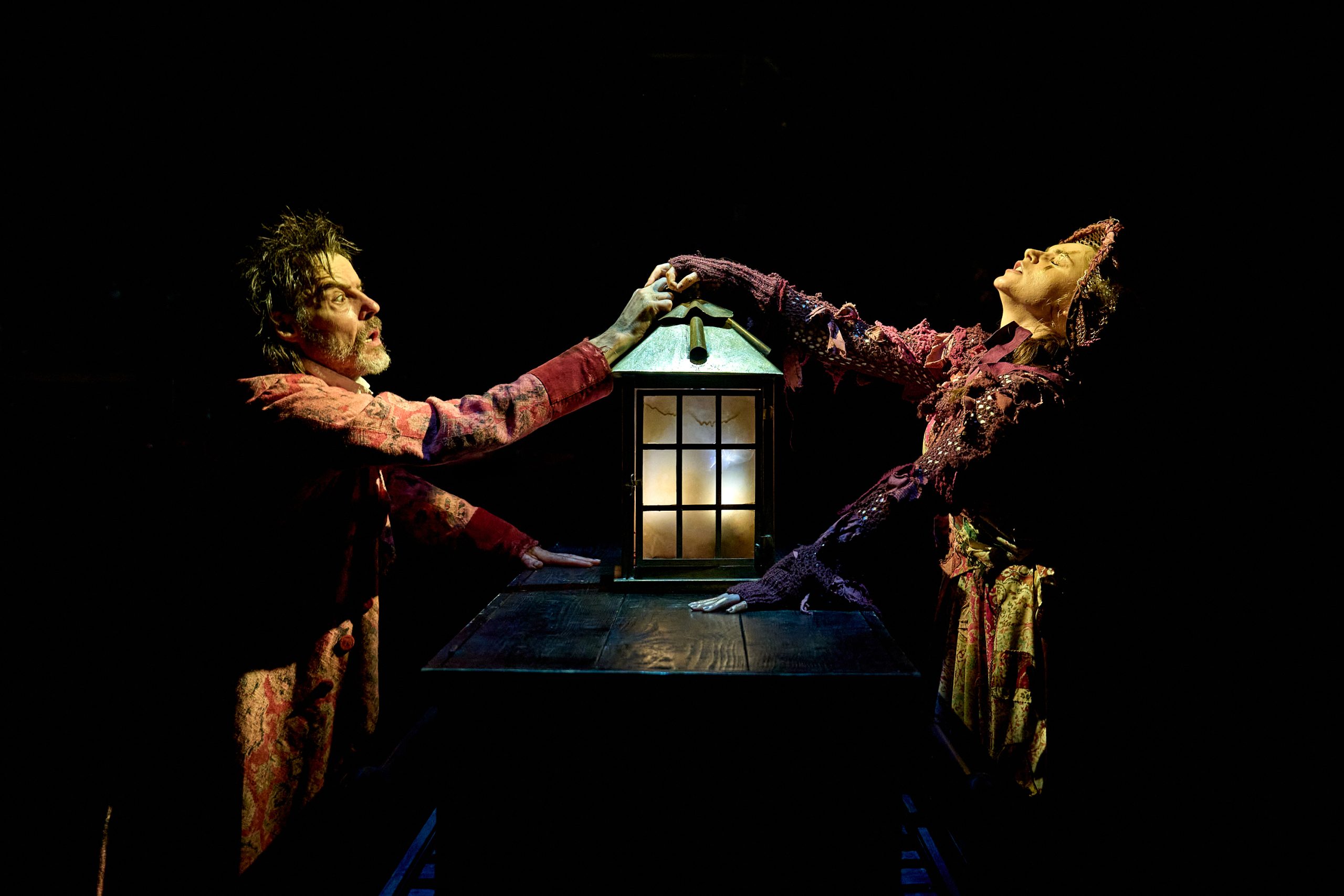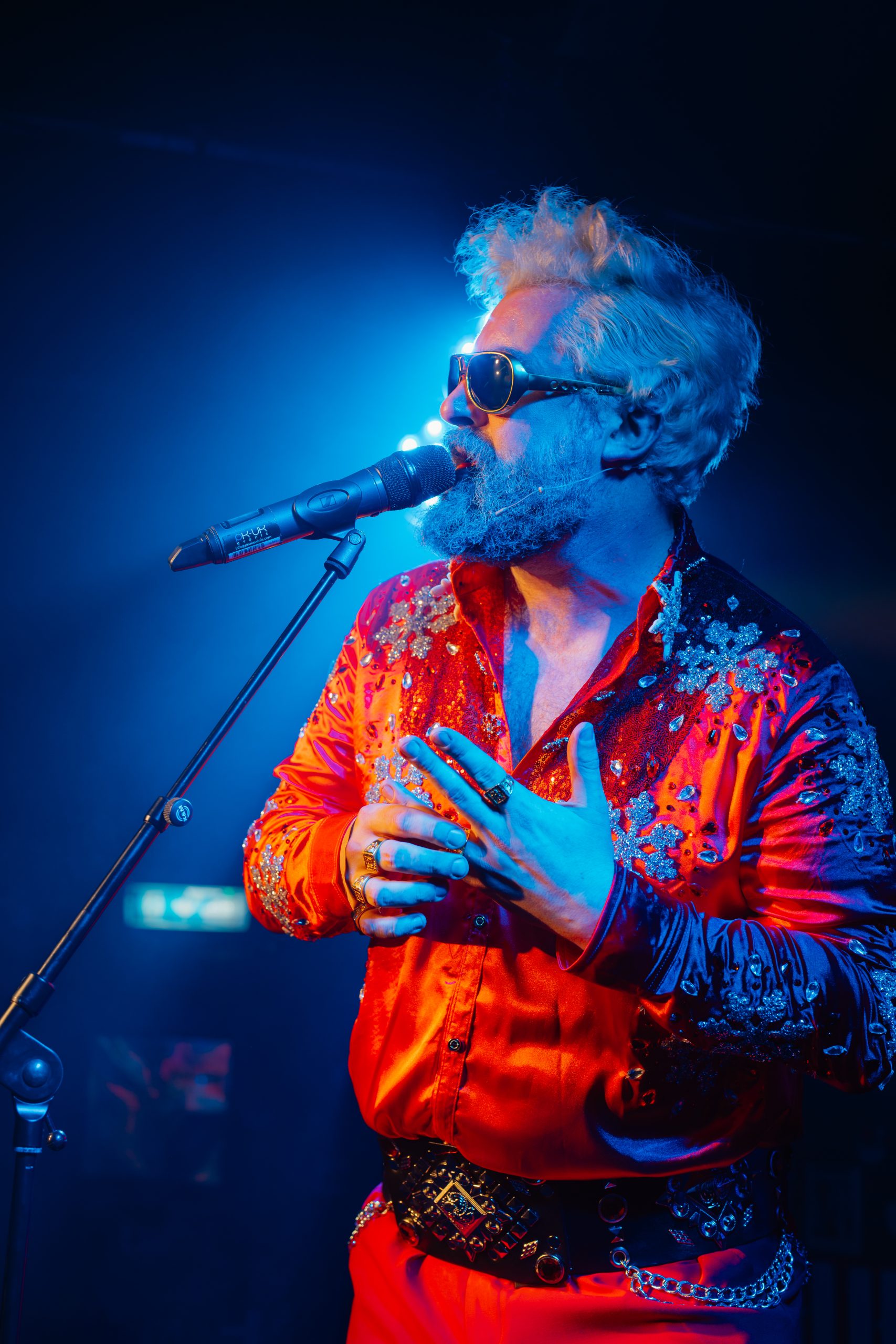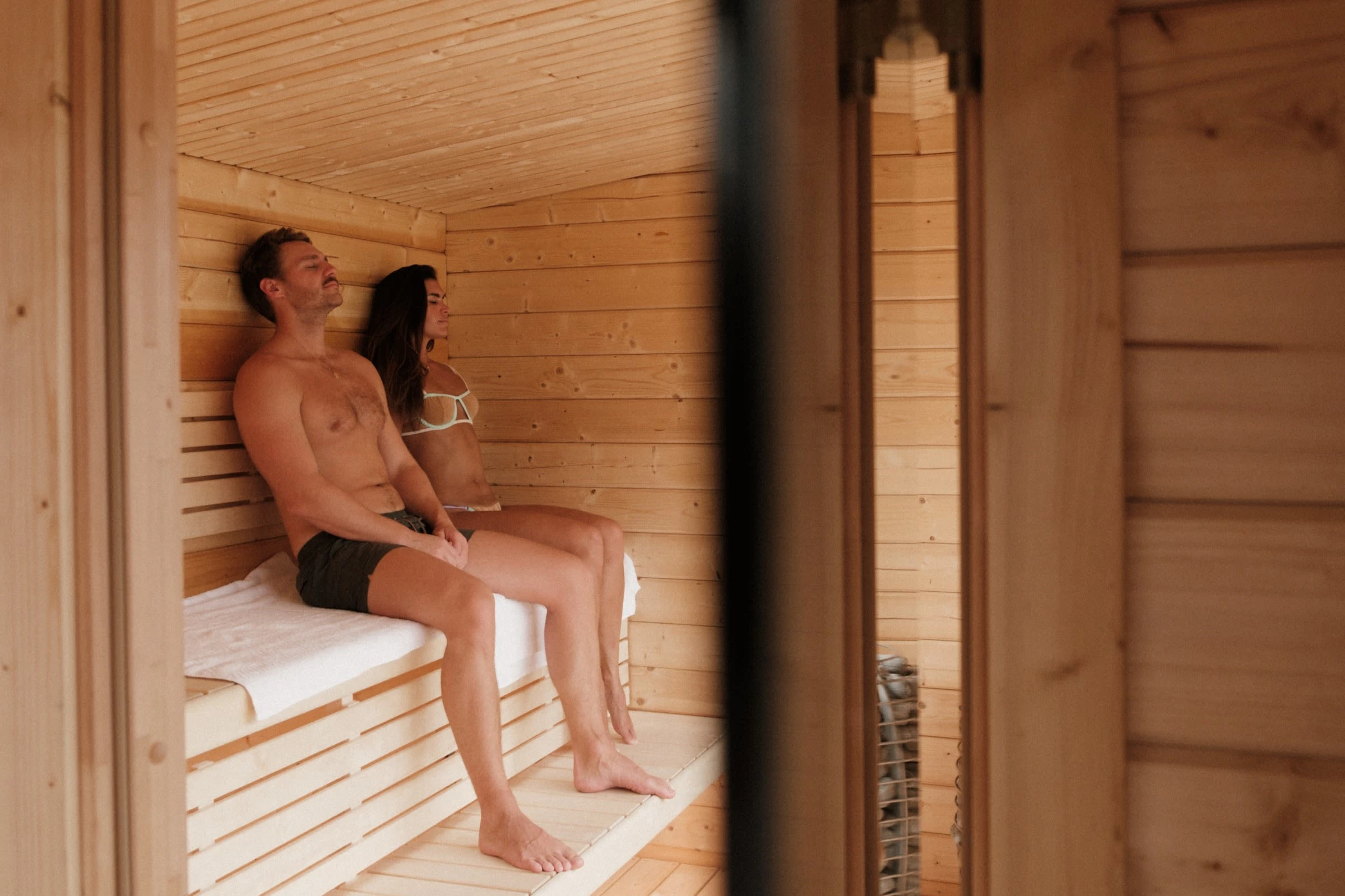For four of the seven triumphant years of its West End run, Karis Anderson has embodied the spirit of Tina Turner at the Aldwych Theatre, bringing humility, grit, and grace to a role that demands not just vocal power but also emotional truth. To play Tina Turner is to step into the shoes of a woman whose music redefined rock and roll, whose voice carved its way through decades, and whose story — marked by hardship, survival, and reinvention — continues to inspire generations. Anderson has not only taken on the challenge but has woven parts of her own story into the performance, making her portrayal both deeply personal and universally resonant.
On 13th September, the curtain falls for the final time on TINA: The Tina Turner Musical in London after an extraordinary seven-year run. Anderson will take the last bow, closing a chapter that has been as much about self-discovery and healing as it has been about honouring one of music’s most legendary figures.
The musical traces Tina’s life in all its raw complexity — from her childhood in Nutbush, Tennessee, through her turbulent marriage with Ike Turner, to her phoenix-like rise as the icon the world reveres today. It doesn’t shy away from the darkness but insists on celebrating the resilience, defiance, and luminous power that defined Tina’s legacy.
For Anderson, portraying Tina has been more than a performance — it has been a mirror. In stepping into Tina’s story, she has confronted her own past, uncovered wounds she didn’t know were still raw, and discovered strength she hadn’t yet claimed. In her words, the role has been a process of “turning poison into medicine,” echoing Tina’s own mantra of transforming pain into power.
As the show enters its final week, Karis Anderson reflects on her four years in the role, the lessons she has drawn from Tina’s life, and how art and reality have intertwined to shape the woman she is today.
Please note: the following interview contains mentions of domestic abuse.
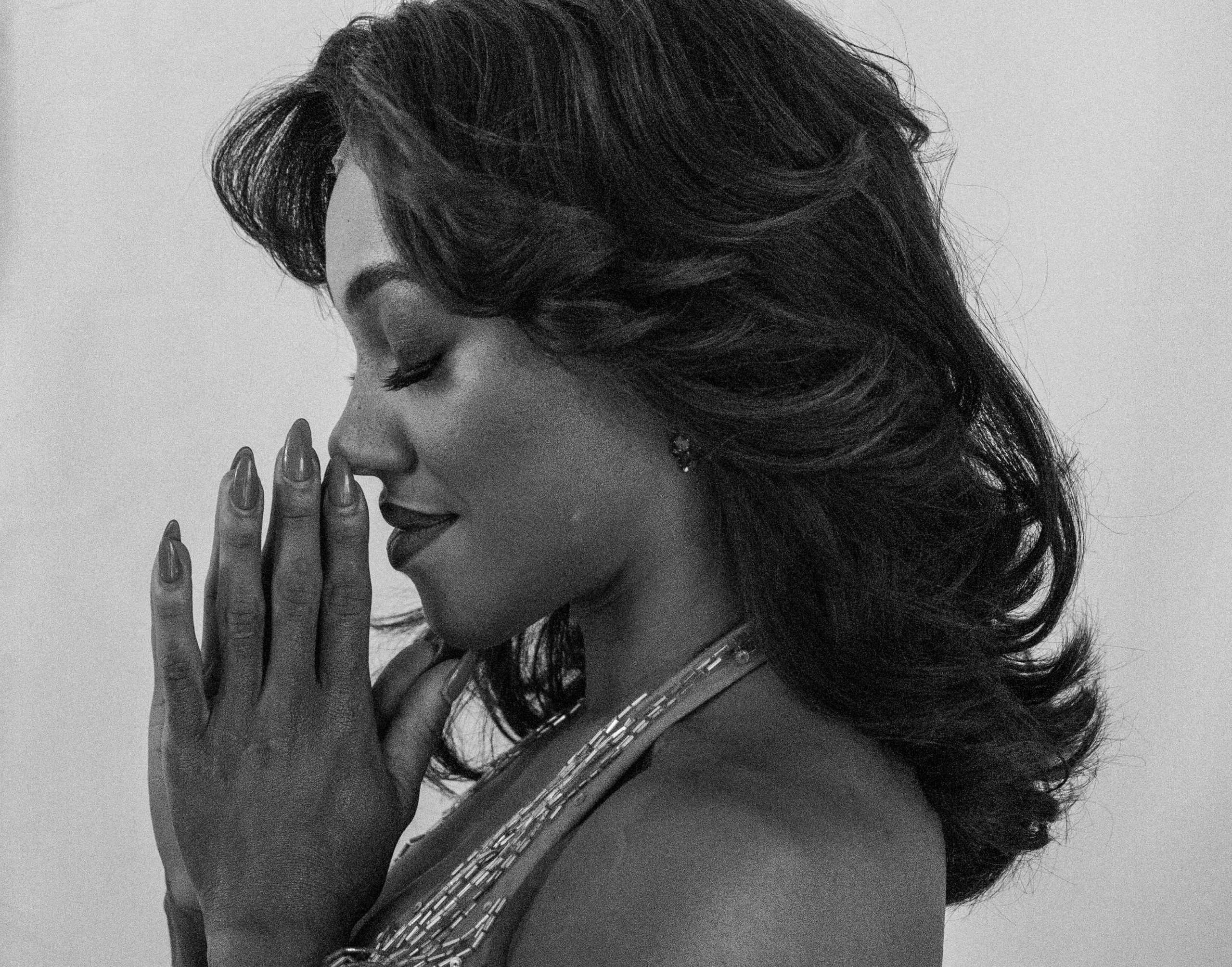
As the show comes to an end in its 7th year, you are now in your 4th year of playing Tina. When you first came into the show, what was your initial perception like of who Tina was?
My perception of Tina was that she was the queen of rock and roll, without even knowing that label was actually truly and rightfully hers. That was generally what I saw her as. Also, just as this woman who has passed so many different barriers and boundaries that I’ve never seen a Black woman do — in the ways that she did it, in the circles that she did it in, and with the story that she had — I’d never seen all of those things combined in just one person.
I’ve seen amazing Black women do great things, I’ve seen women overcome domestic violence, but not be in the spotlight, if that makes sense? I knew her story, I knew her music, and I had an idea of what kind of person she was. But to see all these things in one person — I was like, “Who is this anomaly? Why do I feel connected to her?” So that itself was my perception: I’m connected to this woman, but I have no idea why. It was a connection I couldn’t really explain other than never having seen anything like her before.
That is still the way I see her all these years later, but now it makes a little bit more sense to me because I see so much of herself in me. I can see how so many things can exist in one person because of how much I understand myself more as a person now. I now see similarities in myself and, knowing myself more and more, I understand how multiple versions of a person can exist in one. It’s not just like, “I can only do this.” Multiple things can exist in your life, and multiple versions of yourself can exist. There may be multiple faces that you might need to put on, despite what is happening to you, and I think that Tina did that.
It has transcended into a power of my own, rather than just looking at it in her. Now I share that power with her.
Each actor who plays Tina has their own interpretation of her, and something that I really love about yours is how defiant she is from the beginning. Even when she first gets attacked by Ike Turner, there’s a level of defiance you bring that I find so powerful. How would you describe your version of Tina and where did you draw that from?
I would absolutely describe my version of Tina as defiant — I love that word — but I would mainly say she is never a victim, in all senses. And I’ve learned that myself from her. I try to stay as true as I can to that in my storytelling because I know how strongly she felt about never being a victim to her story or to her experiences.
The minute that you do allow yourself to become a victim in the story, in the moment, in the situation, you’ve already kind of accepted defeat in a way. You can be vulnerable and admit that things have happened and know that these things shouldn’t have happened to you, and have to forgive and get over things. But in terms of being a victim, it’s very different from knowing that someone’s done you wrong. You can know that someone’s done you wrong, but you don’t have to be a victim of it.
I personally carried a victim mentality for so long with things that I’ve gone through, and the truth was that it just wasn’t helping me. Not that I was using it as an excuse, but there were things coming up in my life as patterns, and I kept using it as an excuse. But the minute that I stopped becoming a victim, everything changed.
If I am feeling vulnerable, I allow myself to have that moment and then move on to the next scene. So yes, I would say my version is: she is never a victim — that is the headline of my Tina that underscores everything. I’ve drawn that upon myself as Karis from Tina herself, because that was her motto: never be a victim.
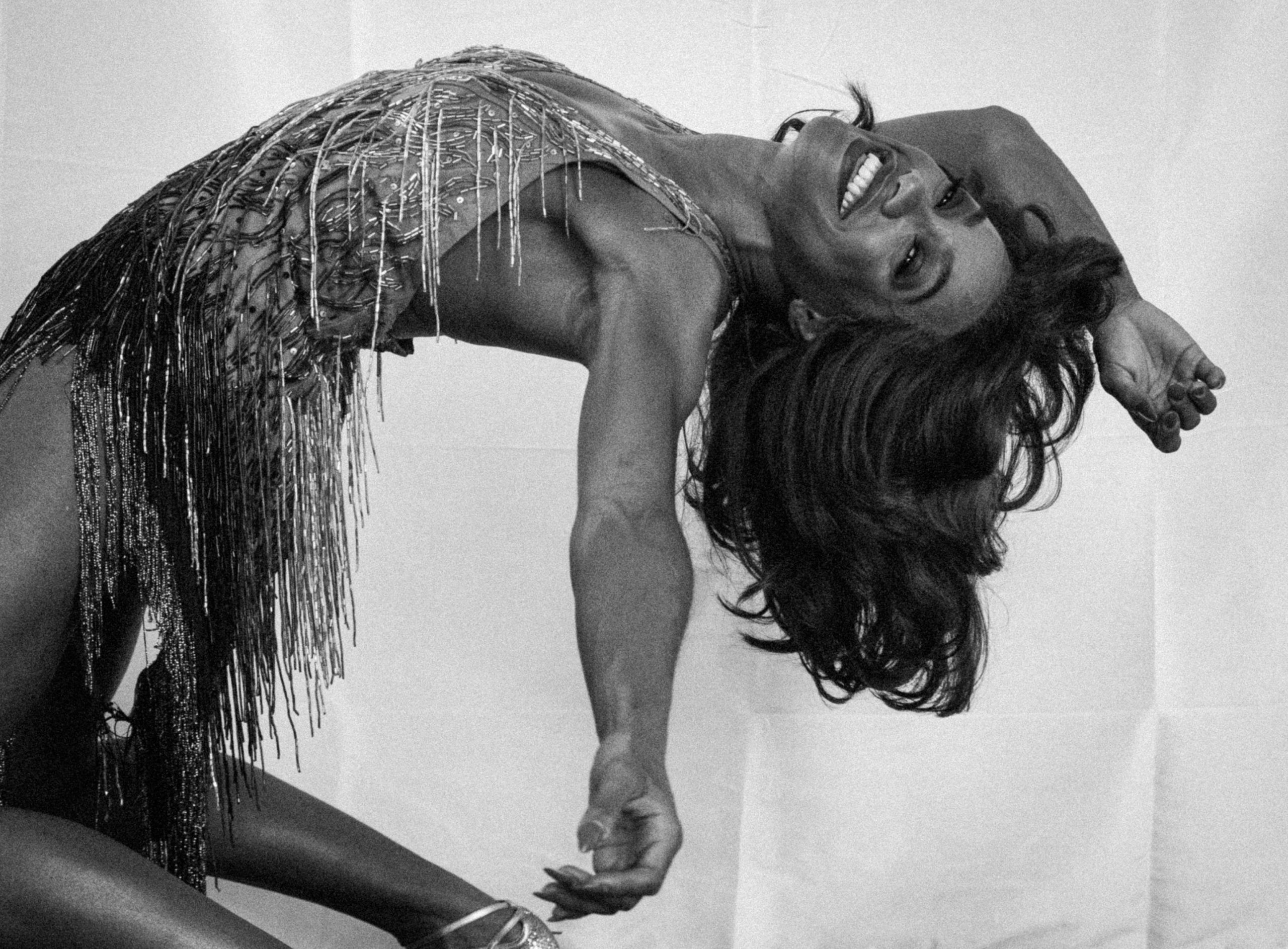
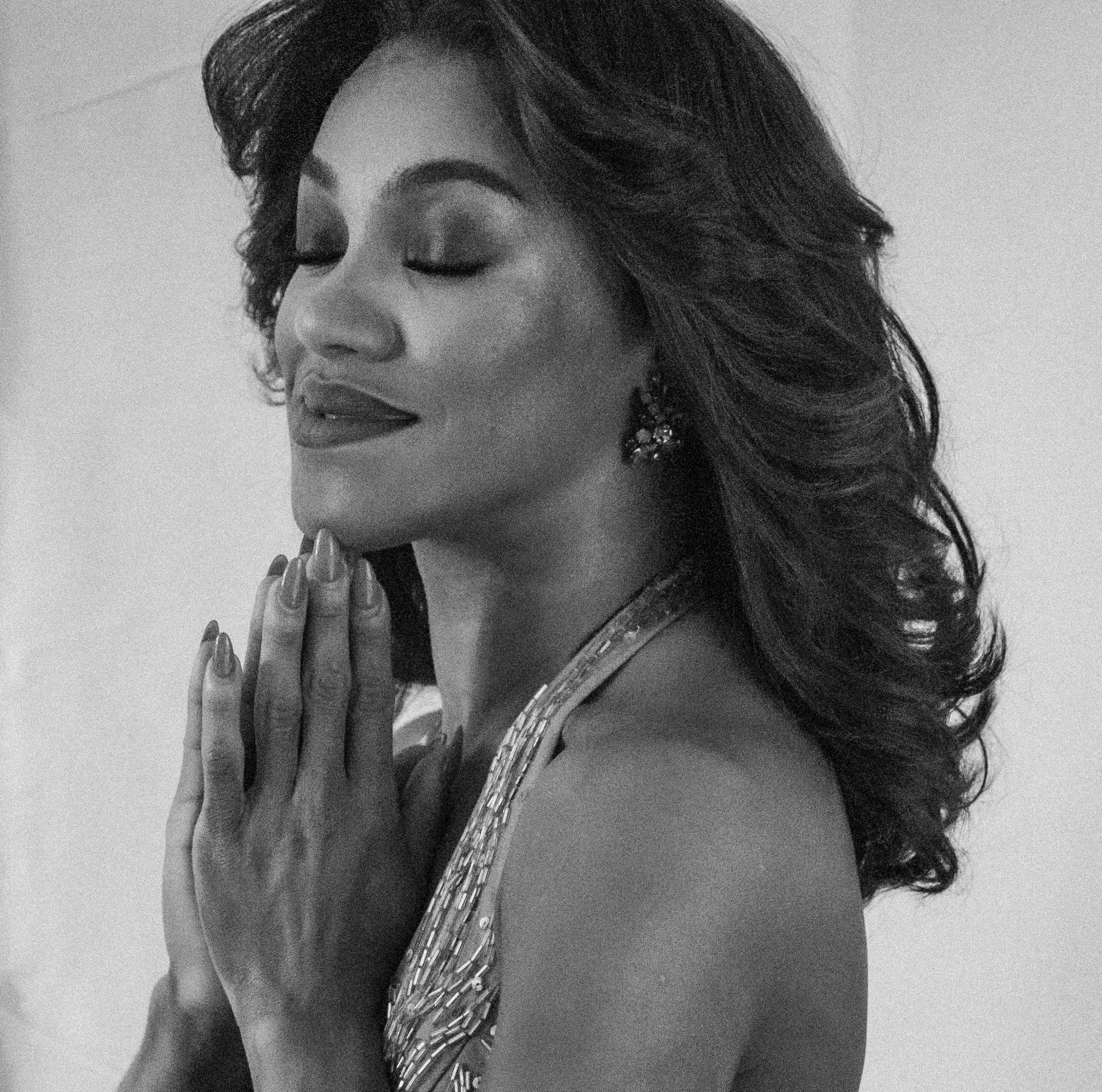
Carrying on with that idea of Tina not being a victim, she went through some awful things in her life, which have to be shown in the show. How did you approach looking into the not-so-positive aspects of her life?
Unfortunately, I was very probably well-versed mostly in the bad side of her story. I was obsessed with her, because I found this woman who was in the spotlight, who’d been through similar things to me, which felt very rare. You hear old stories about things happening, but you don’t see anybody speak about the things that I’ve gone through. I’d never heard anyone say, “He nearly killed me,” or “I tried to kill myself,” or “I woke up in the hospital.” All of these things that happened to Tina — I had never heard anyone speak about them.
I’ve watched every interview, I’ve read all the books about her, and there’s a very clear structure of her life in all of the books, which is great. But for me, I wanted to see her eyes in the interviews and how she spoke about things, and how it felt when I saw her say it. So it was just hearing her speak about it. And she was kind of sick of talking about it after a while — she got so bored of it and said, “This does not define who I am.”
I think that’s another thing that I’ve learned from not being a victim — you can let go of old versions of yourself and reintroduce yourself as whoever you want to be. But that can only happen when you let go of those old versions, and that can only happen if you’re not a victim to it.
When you’re playing a real person who is so well known globally for her voice, her style of dancing, her movement —there are so many elements that are stereotypically ‘Tina’ to anyone who knows even one of her songs. There must be a fine line between becoming a caricature of a person, which is something you don’t do. You are so respectful with your storytelling — how do you fine-tune that?
How long is a piece of string? I’m still doing it. I’m still fine-tuning it with every show I do. There’s no end to it.
I think because she was so limitless in everything that she did — she even said, “I’ve got no top and no bottom to my voice. My voice is unlimited.” And that’s so true for me playing her — my range has been getting bigger and bigger throughout this. There’s never been a moment when I feel like I have journeyed it all. But I know my main growth came from my first year, and when I look back at videos of me in the beginning, I’m unrecognisable.
With someone who has such a niche way of moving and performing, it can go to a tribute style. And there are so many amazing, iconic Tina tributes — some of the beautiful and incredible dream tributes have come to the show and they have been so blown away by it. They respect the difference, and they respect her.
Even just characterising your Tina voice — her voice has got such a character to it. It’s got low tones, but high tones; there are so many different textures to her singing voice and her speaking voice that there are so many ways in which you can emulate her. But the minute that you try to directly copy her is when it becomes a caricature tribute.
I always say I am the vessel and Tina is a spirit, and she’s running through me. I’m like a filter for this story that has been happening way before me, and now this is running through me in my way. I try to keep the essence and nuances of her.
My thing is, you don’t know what you can do until you push yourself to the limit. I would rather give too much and have it taken back than not give enough and have someone say that I’m not enough. So I will always give everything. I give every molecule that I have.
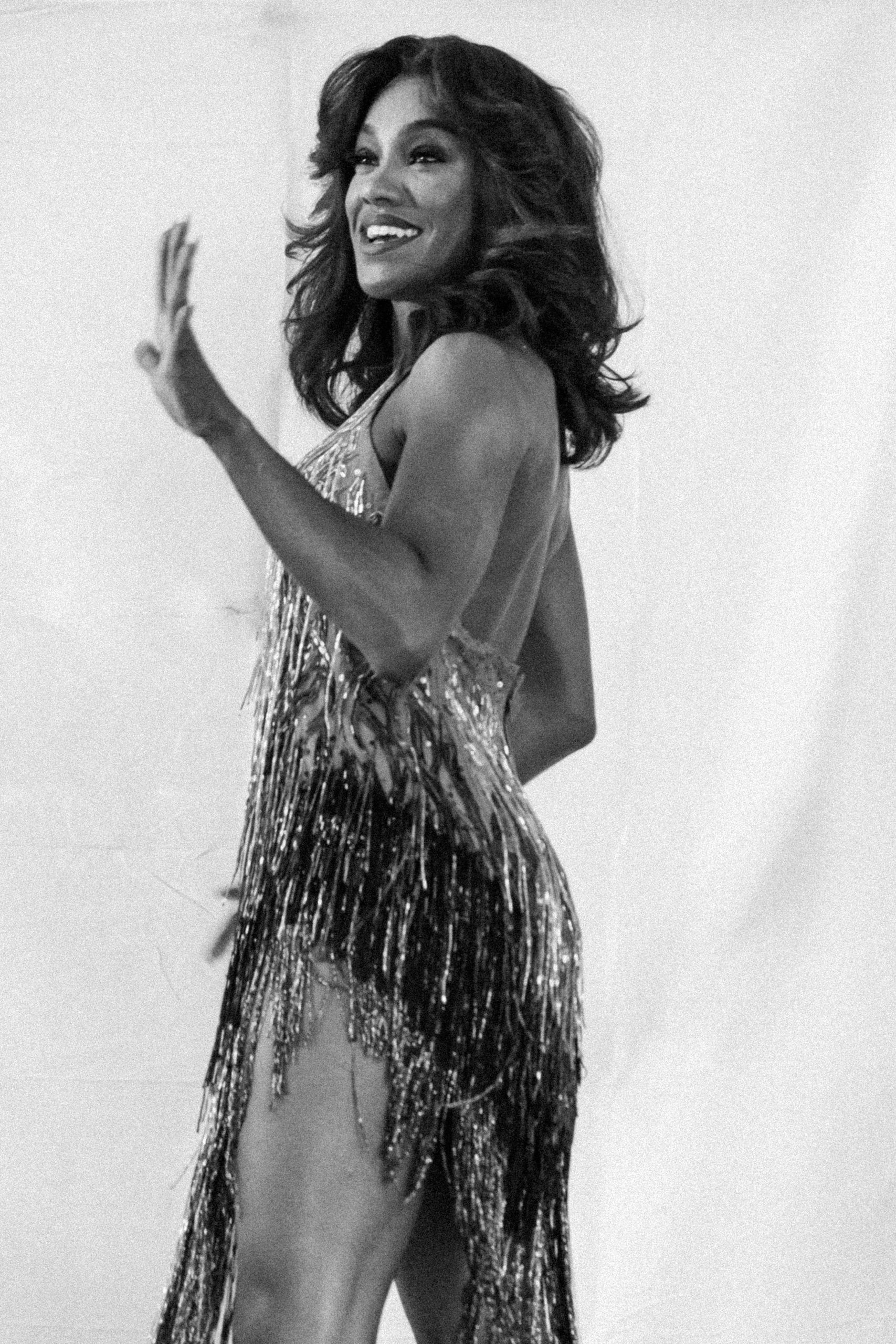
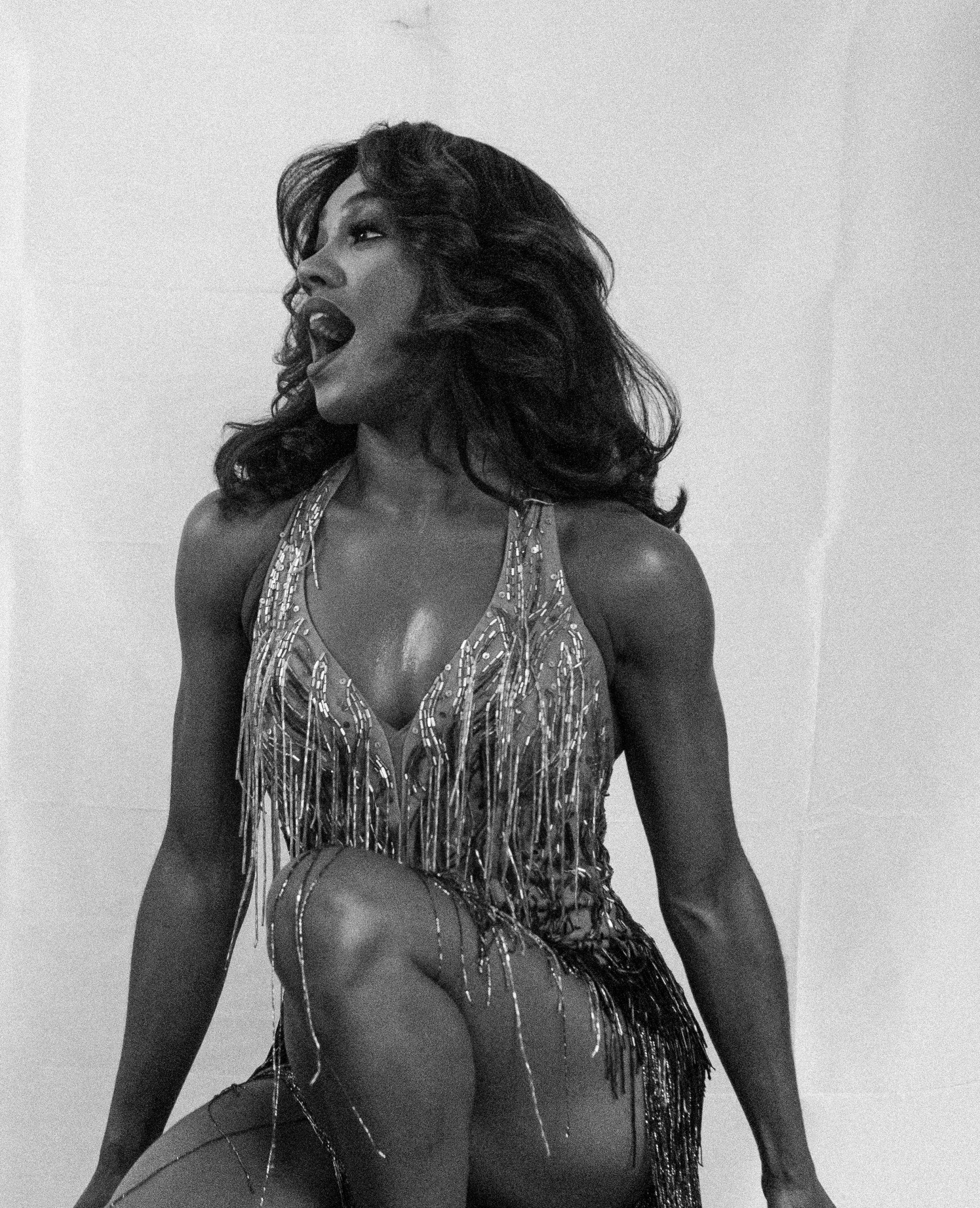
Tina herself had a lot of involvement in the show, and which aspects of her life were important to include, including the awful acts of abuse she suffered from Ike. You are very vocal about your past with dealing with abuse yourself. In the show, these scenes are obviously very carefully choreographed, but how do you get through those scenes as Karis?
To begin with, those moments were very triggering for me, simply because I thought that I’d worked through stuff that I hadn’t. I’ve always been very vocal about my own experiences with domestic abuse — I wrote a blog on it — and I was very much like, “Yeah, this happened, I’m a survivor,” but without actually doing one ounce of healing from it at all.
I would always say I was fine and that everything was fine, but the minute that I did this show, it’s honestly like it was meant to be for me. I believe the show chose me — well, we chose each other — and I needed this for my spirit and to actually begin to heal. I think that the show needed me for its spirit, too.
The actual process that I’ve gone through is way more than I could ever imagine that I would get from any role. And the healing that I’ve had to do — for example, in a scene where Ike slaps me in the face — I was at a point where the brain doesn’t know when it’s real or fake, right? You’re on such a high, and then the man that you trusted is abusive to you, so you lose trust in humans, and then you have to fight for yourself. This whole woman’s life journey: she made it, she lost everything, she made it again. This all happens in a condensed three hours on stage.
Having to play 30 years of a woman’s life in such a short amount of time is a lot. I was always going to have to do some healing from this because of what I’ve gone through. But because I hadn’t healed when I started, it truly was like I was slapped in the face. So the stuff that I was going through on stage started showing up in the relationship I was in.
Having recently gone through a breakup, I can talk about it now, but some things were showing up in my relationship. It felt like a parallel universe, but it helped me realise that I’ve got to heal from this stuff. There are some things that you only see for yourself when you’re in it, and it’s helped me so much.
I went back to therapy, did a lot of energy work and energy cleansing. So it’s been a journey, and I still don’t think that I’m even there yet. I think I myself am now in Act Two, let’s put it that way. I’m in the period of realising who I am, realising my worth, realising what self-love means, saying no, standing up for myself, championing myself, and working my ass off to get everything that I know I can achieve.
I can approach the abuse in the show very differently now. I can approach it with the knowledge that I’m okay after, and speaking to my little self, letting her know that it’s okay. I approach those moments with care and grace — for myself and for Tina. I was so emotionally driven before, when I started the show, and I didn’t know how to handle it. But now I just think about the fact that I know I’ve got over it — literally, I know I’m over it — so I can do it. We get over it a little bit more each time, as Tina and as Karis. All the versions of me go through it, and we get over it each time.
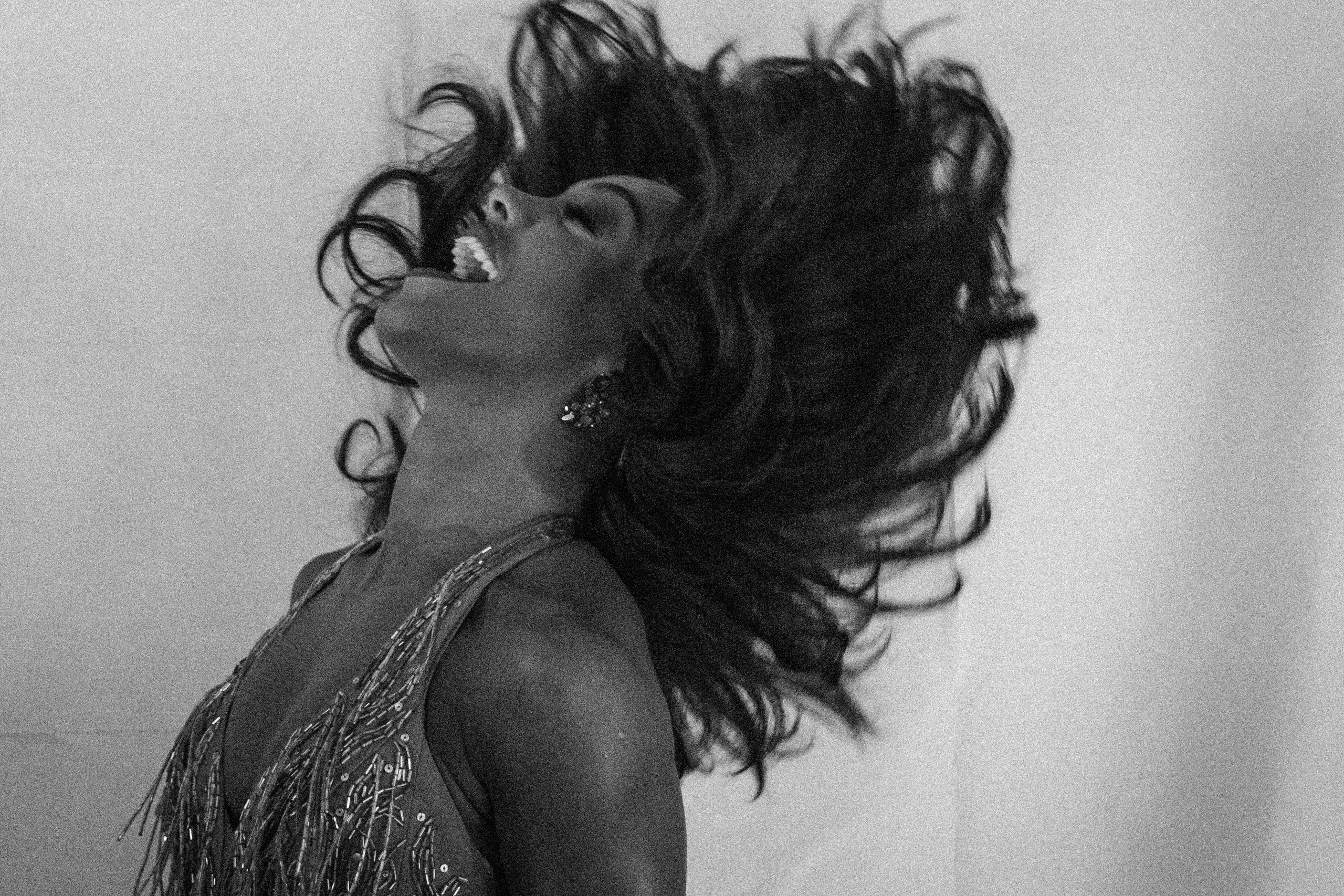
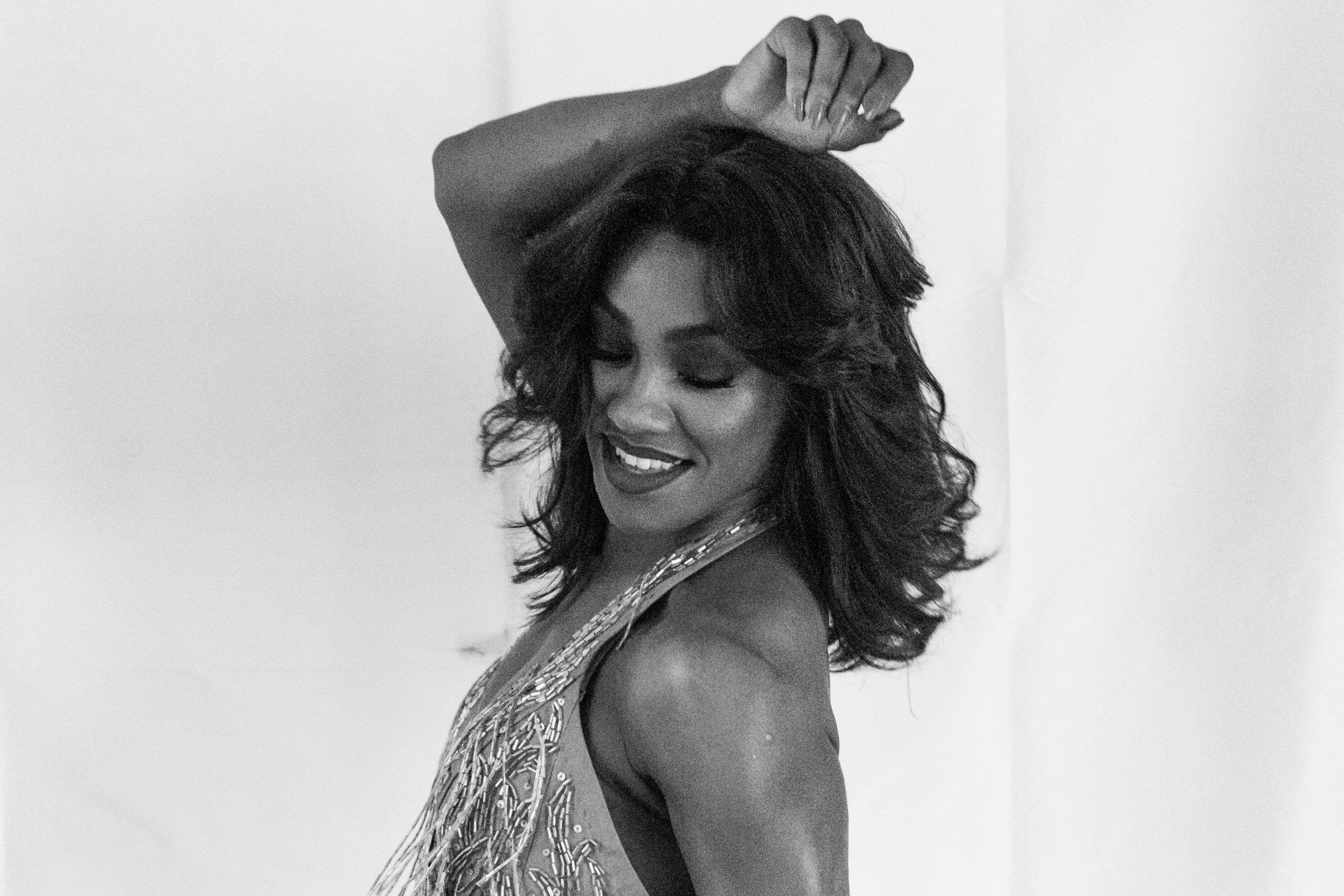
How do your own experiences inform the choices you make as Tina? Something I notice as an audience member is that you really use the end of Act One (“Don’t Wanna Fight”) as a real cathartic moment—not just for your version of Tina, but for you in your performance. There’s a real sense of letting go of this first act and this dark part of Tina’s life to step into the next part of her life. Which, when Act Two opens, is not exactly going great for her…
Because of my own experiences, I know that purging is a real release. Crying is a real way of purging your emotions out. After all the fighting, there’s this end moment where she has left Ike and the cast is chanting Tina’s name as the curtain goes down.
We have these beautiful moments in rehearsals where, as an exercise, the Tina will sit there and the cast will chant at Tina. She and I — both versions of myself — sit there and receive all the chanting and energy and power from your cast members, and it’s such a beautiful exercise. So when you’re on stage, you just remember where you were in rehearsals, remember what that chanting means. It’s specifically placed and just beautiful. It’s a ritual, you know?
For me, how I approach these moments is with such gratitude that I get to have a spiritual experience every time I get on stage. Everything to me is a spiritual experience. For me, to be able to do that through my gift, with my gift, on stage every night — most nights — it’s the best thing. How I approach it is, just like I said, with gratitude. Knowing that I’m getting to live my dreams through my gift to inspire people, but I’m also healing.
Whilst so many people know Tina and think of Ike, the musical is careful to highlight the importance of the positive and negative female relationships in Tina’s life — her relationship with her grandmother, her not-so-positive relationship with her mother, even her relationship with the Ikettes. You specifically are very good at showing her relationship with them, and then the relationship with her manager, Rhonda. You have played against many incredible women in that role, but I would be remiss not to talk about the beautiful relationship you crafted with Emma Hatton as Rhonda, which I know has been so pivotal in your Tina journey. How important is it to you to have those bonds on and off stage?
To have these beautiful connections with these women on stage is so incredibly important — for you on stage and for all these small moments as Tina. But to have these relationships off stage, for me, has become a huge staple. I have been an Ikette, so I know how important the mood or the relationships with the Tina can impact each show. I think that it is so important when the lead shows you some love as an ensemble on stage.
So that’s one layer to it, and there’s another layer to it: the importance of female relationships in this industry — on stage, off stage, having someone who’s in your corner, having someone who you can cry to or laugh with. Just having someone you can tell you’re having a bad day, and who gets it because they know the industry and they see you as a person and love you.
That’s my Emma Hatton, who was my Rhonda Graam for two years. My on-stage, off-stage sister friend. It was just so naturally nurtured whilst we worked together. Having her in my corner and having her in my life made me realise the value of female relationships outside of work. Seeing what Rhonda was for Tina — that relationship they had and how important that was for her — made me see how much I maybe need that, and how I’ve secluded myself away from it sometimes in my life. So it’s not only nurtured my experience here, it’s nurtured my real life, my real purpose, which is my real life too. I’ve allowed friendships more, I’ve trusted women on and off stage a bit more, which has been lovely.
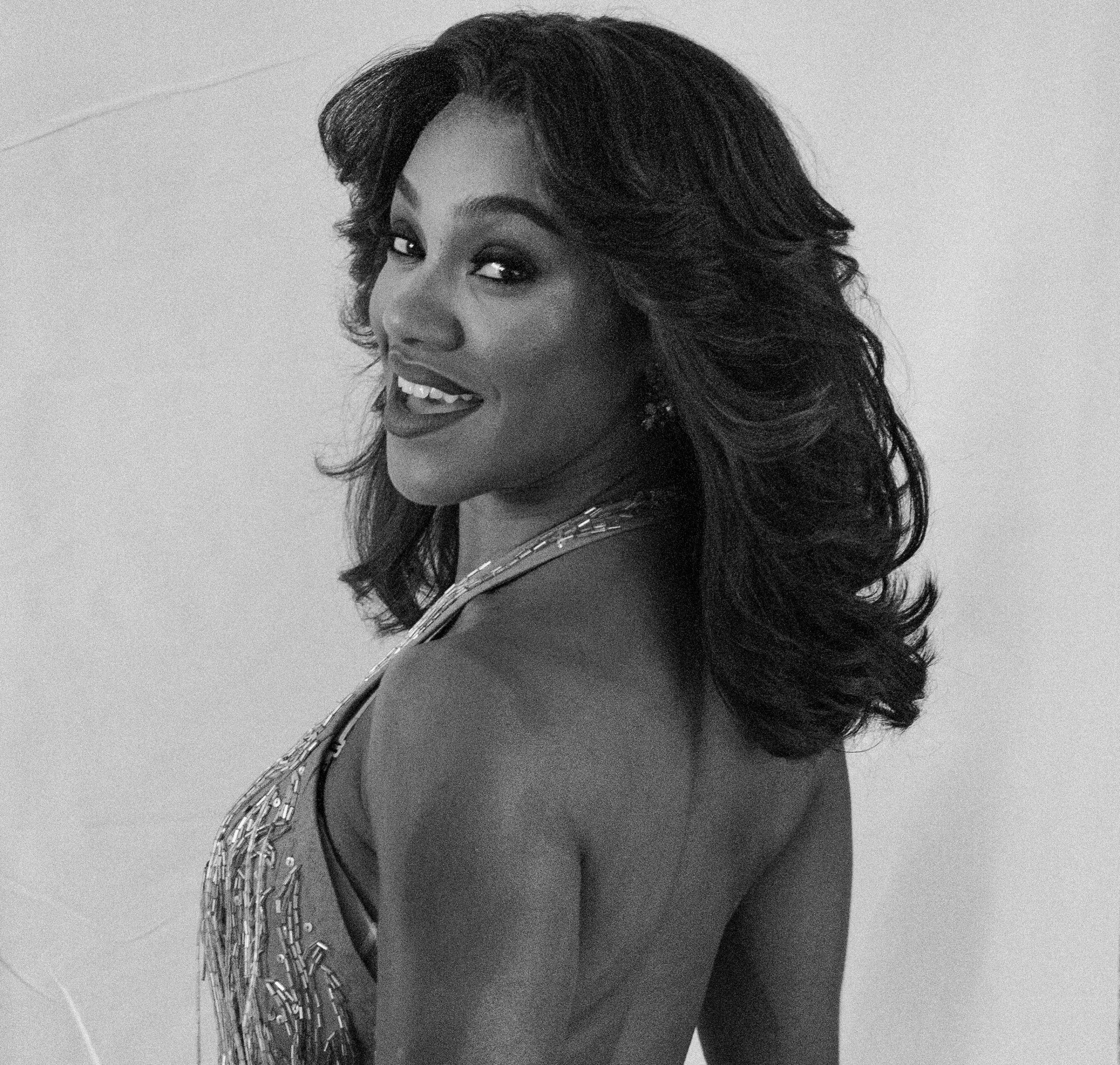
Tina is a very unique role where the job is shared by two actors, in a set pattern of an equal split of four shows each (as is currently the case with you and Fleur East). You previously shared the role with Elisha St Paul Moses and Zoë Birkett. What has sharing the role taught you?
Sharing a role, for me, is the best situation. Firstly, the work/life sacrifice that I would have to make if I did any more shows than four (or previously five in the last contract) would be huge. I need my life. I can’t shut myself off to the world because I’d be depressed. I need to experience excitement outside of work.
It’s taught me grace. It’s taught me humility. It’s taught me the power of alignment with other powerful women. It’s taught me to stay in my lane and be cool with that. It’s taught me that some relationships have been difficult, and it’s not always going to be perfect — and that’s okay. It can be perfect, and that’s okay also. And it’s just taught me that role shares should be more common in musical theatre!
As the show comes to an end now, what is your biggest takeaway from your time with the show?
My biggest takeaway is the healing that I’ve had from it, as we discussed before. So many of Tina’s experiences, unfortunately, do compare and relate to me. When I first started, I was so focused on the dark side of the show. Which I think was instinctual, because I thought I had to redefine what it meant for me and what it means for me moving forward.
As we said, the brain and the body don’t know the difference between a fake situation and a real one, and I was taken back to so many dark places. But over the run, I started to redefine the meaning of it to me. Then I started focusing on the positive side of the show, finding the light at the end of the tunnel, finding hope, and lifting some of the heaviness off.
I started thinking about how I can become a better woman and what I can do for myself — setting boundaries, stopping people-pleasing, letting go of toxicity, and realising I am able to not let my past negatively define me. And like Tina says: turn my poison to medicine. I live by that now, and I truly can say that I’ve come out of my old situations through this show.
What is the biggest lesson that you’ve learned from Tina herself?
Duality. That both strong and soft can exist. That balance exists. That you can be all versions of yourself because they are all you. You can own your truth and always stand up for yourself in situations, but you can also be a graceful and humble person who is really soft and sweet. Just because you can stand up for yourself, that doesn’t mean that you are not a kind person. You can do everything with kindness but still be able to honour yourself.
The juxtaposition of life and all of who you are — even if they don’t make sense to other people — when it’s your truth, you can do everything with love.
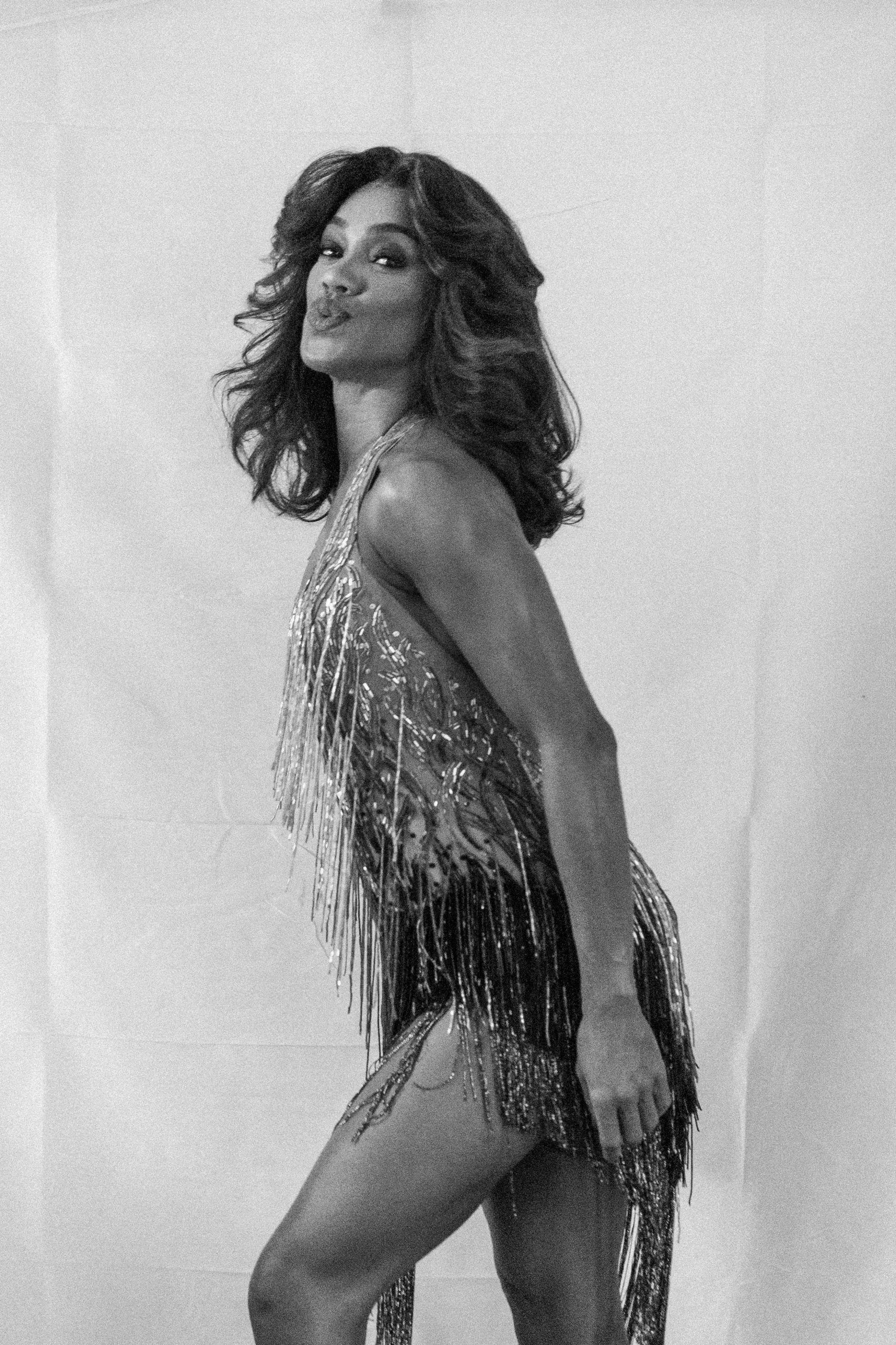
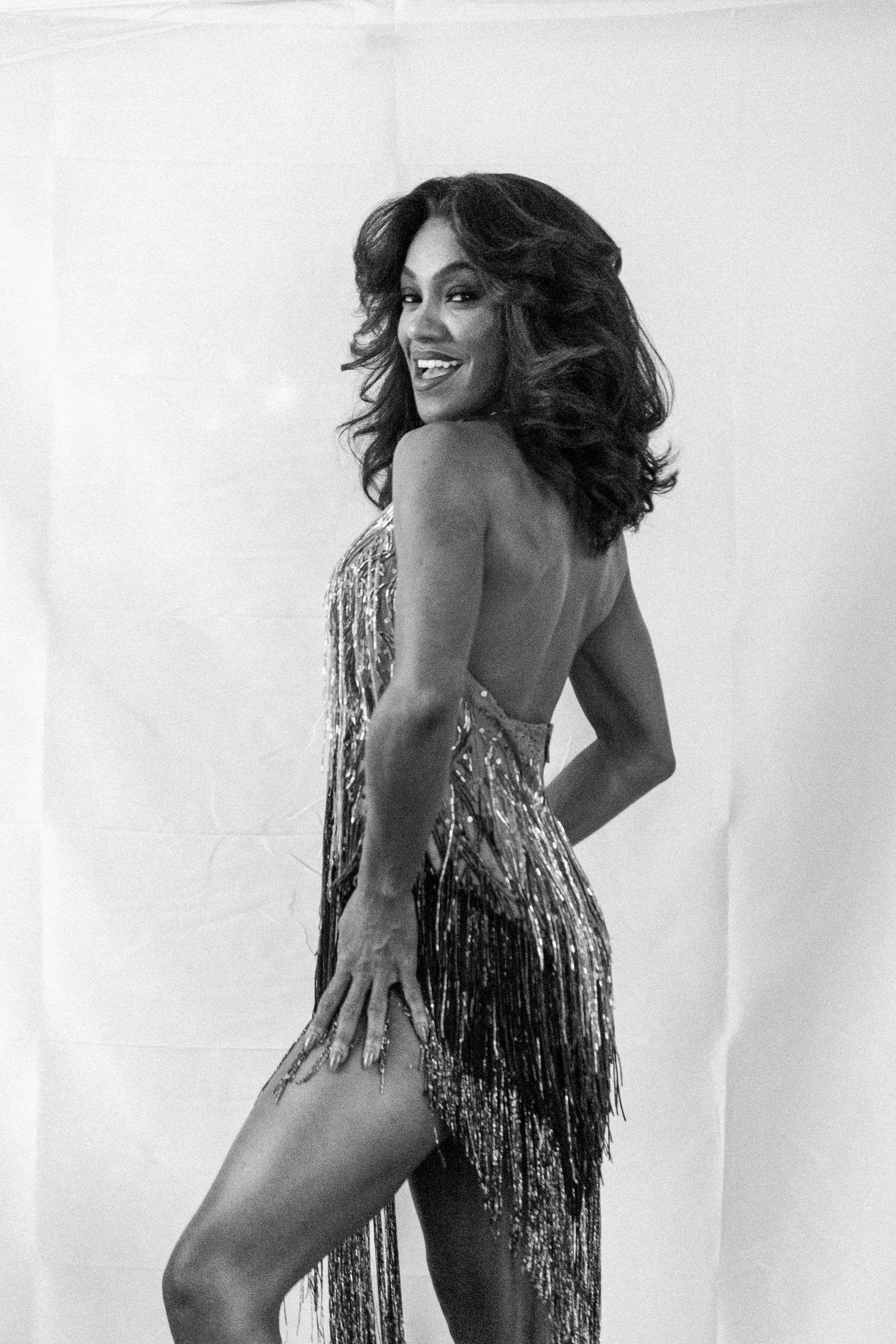
Your life has changed so much with your journey with Tina. Both she and yourself have overcome some pretty huge challenges, which we discussed earlier on. How would you describe the Karis who is leaving the show?
My life has changed almost as much as Tina’s has across the span of the show. I have moved house about four times, I suffered an injury on stage which forced me to stop and take time away from the show, I’ve split up with my life partner, who I thought I was going to be with forever. I built a whole house, which was my beautiful dream home, and I left it all behind. I started again completely on my own, and I am now happier than I have ever been because I chose myself.
The Karis that joined the show was a serial people-pleaser, was so scared to not be liked, didn’t live in her truth, and knew her power but didn’t know how to apply it. I think she really undersold herself. And I can now say that the woman who is leaving the show is the strongest version of myself that I have ever seen. She is someone who honours every part of her life. She’s set boundaries and she’s let go of what doesn’t serve her, and she has made space for a beautiful tribe of people that continue to show themselves in her life.
She’s someone who stands up for herself — for the baby Karis who didn’t have anyone to stand up for her then. And I am really proud to say that I am a more healed version of myself, with grace and love. Without this show, I would never have found this version of who I am.
The musical’s legacy lives on through a UK tour, and no doubt new productions will pop up across the world. What would be your parting piece of advice to anyone who is thinking of seeing the show?
I would say be prepared to go on an emotional rollercoaster. Also, be prepared to see her music differently. People think they know things about her, but you get to see so much more. It goes very deep and heavy, but we show you the light, and we keep that theme of hope running through the whole show. This is a beautiful body of work with wonderful creatives who have created a show that is so important. You will be blown away by this story.
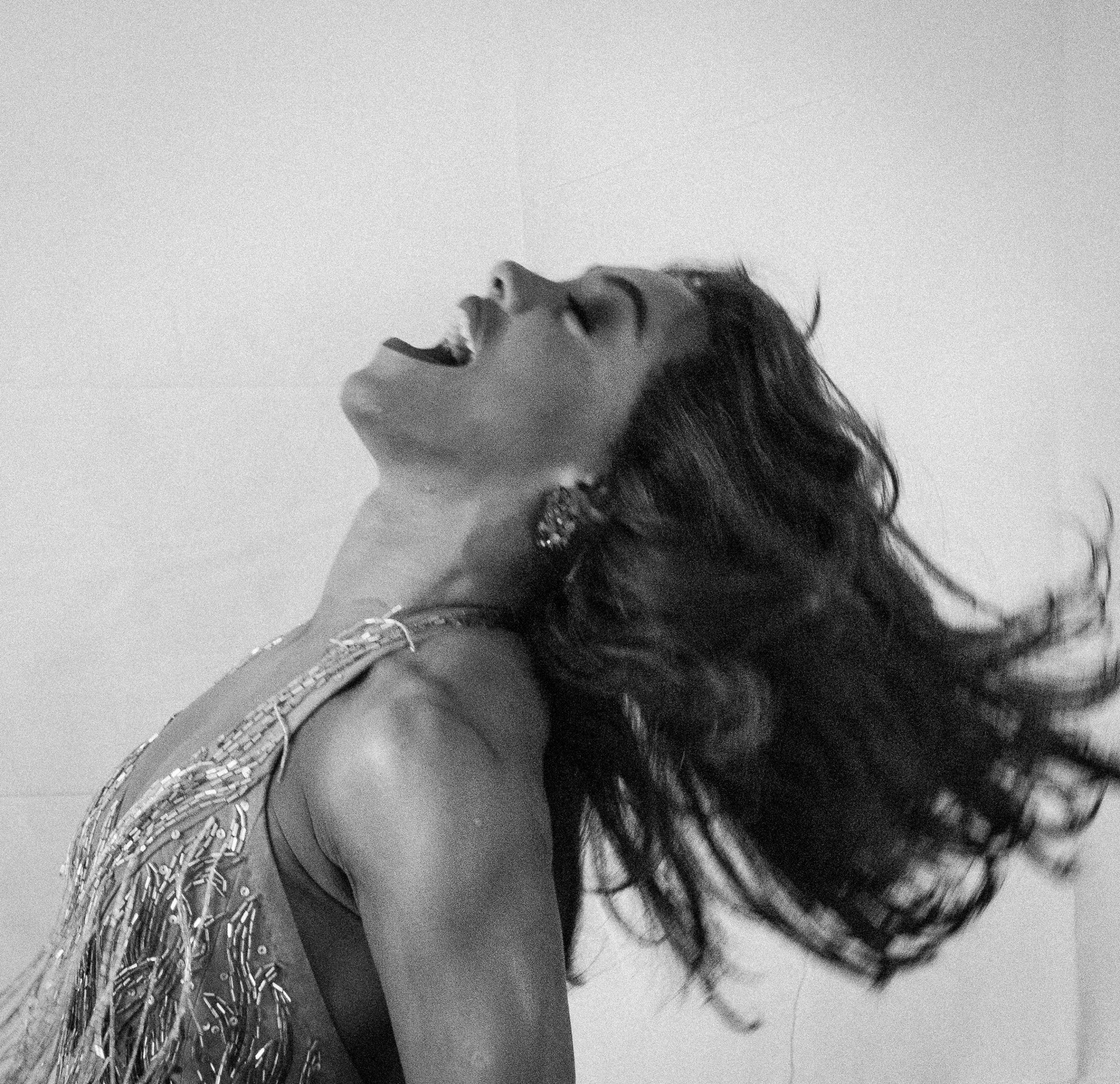
Information on the final performances of TINA, The Tina Turner Musical, can be found at tinathemusical.com.
Interview & Photography Amelia Walker

